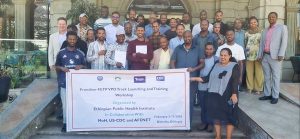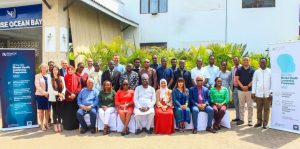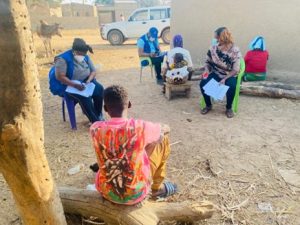Enhancing public health security through frontline field epidemiology training in Zambia
-
by
AFENET
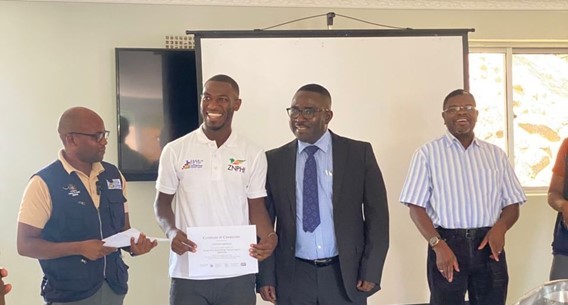
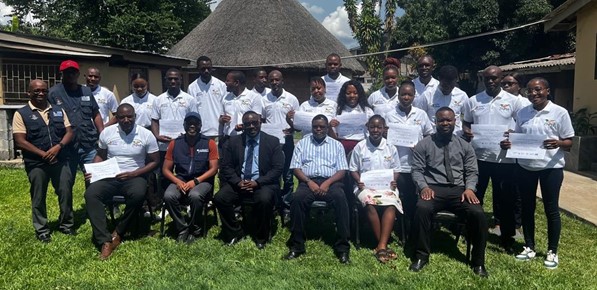
On 27 November 2024, The Zambia National Public Health Institute (ZNPHI) and Ministry of Health (MOH), in partnership with the World Bank and US Centers for Disease Control and Prevention (US CDC), celebrated the graduation of 20 frontline health workers from the Frontline Field Epidemiology Training Program (FETP) in Copperbelt Province. These professionals have been equipped with essential skills in basic applied epidemiology, enhancing their ability to respond effectively to public health challenges.
The ceremony was graced by distinguished leaders, including Dr. Charles Mwinuna, Provincial Health Director; Professor Roma Chilengi, Director General of ZNPHI and Project Coordinator of the Africa CDC Regional Investments Financing Project; Dr. Joseph Nikisi; and Dr. Nyambe Sinyange, FETP Program Director.
In his keynote address, Dr. Mwinuna congratulated the graduates on achieving this significant milestone in their careers as frontline field epidemiologists. He emphasized the critical role their newly acquired skills would play in improving community health and urged them to share their knowledge with colleagues and peers to strengthen public health systems further.
“FETP graduates have been at the forefront of numerous outbreak responses, tackling diseases such as anthrax, polio, measles, and COVID-19, as well as addressing emerging challenges like M-pox and Zambia’s historic 2023/2024 cholera outbreak—the largest in the nation’s history. Today, we celebrate your hard work and dedication. Your achievements are a testament to your commitment to safeguarding public health,” Dr. Mwinuna said.
He expressed deep gratitude to ZNPHI for its unwavering support and acknowledged its pivotal role in capacity building through initiatives like the Africa CDC Regional Investments Financing Project. He noted that these efforts have been instrumental in empowering frontline health workers to protect public health and that their impact would resonate for years to come.
In his congratulatory remarks, Professor Chilengi commended the graduates for their dedication and perseverance in completing the rigorous training. He highlighted the strategic importance of Copperbelt Province, given its proximity to neighboring countries and its role in cross-border health security.
“Over the past three months, you have become part of a global movement—the FETP is not merely a curriculum; it is a response to the global challenge of public health threats. You are Zambia’s first line of defense against diseases that threaten to destabilize our health systems, communities, and economy,” Professor Chilengi remarked.
He emphasized that the day’s celebration was about more than just academic achievements—it was about the graduates’ real-life experiences and their commitment to serving as stewards of public health.
“Each of you carries a unique story—of witnessing the devastating impact of disease on families, analyzing data to uncover hidden patterns, and intervening in critical moments to prevent the spread of infection. You have been trained to detect the invisible, trace the untraceable, and act with urgency amidst complexity. Today, Copperbelt Province entrusts you with an extraordinary responsibility: to safeguard its people, communities, and future,” he said.
This milestone underscores Zambia’s commitment to building resilient public health systems by equipping frontline health workers with the skills and knowledge to respond to current and emerging health challenges effectively.

